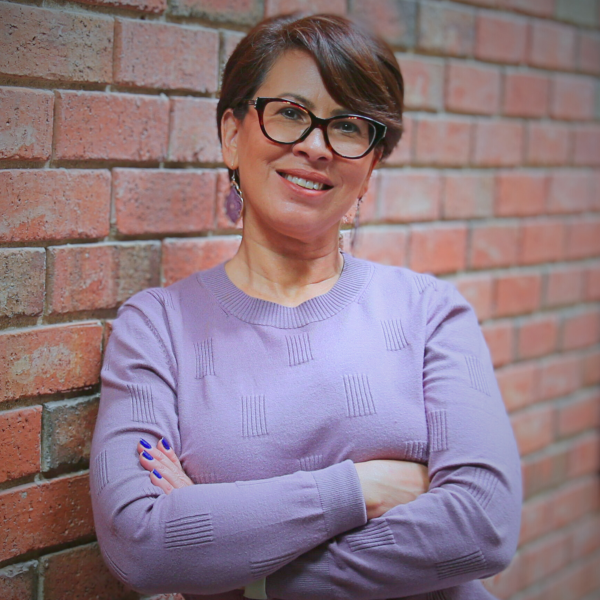
A Mother’s Lesson on Forgiveness
How can you forgive when the worst possible thing has been done to you or someone you love? That was the question I kept wrestling with as I prepared to join a Facebook Live on the topic of forgiveness.
I’m no stranger to forgiveness. I’ve had to extend it and ask for it many times. But this particular conversation stirred something deeper in me. I found myself meditating, reading, and listening to stories, some of people who refused to forgive and others who bravely chose to. Yet the greatest lesson didn’t come from a book or sermon. It came from my mother.
My mother’s story is marked by both resilience and deep suffering. As a child, she knew moments of joy, like splashing in puddles after the rain. But those moments were tangled with verbal and physical abuse, experiences no child should ever carry. What should have been her safest years were scarred instead by fear and harshness.
As a young woman, she longed for love and stability. At first, she thought she had found it. He seemed kind, even charming. But behind closed doors, the truth unfolded. Her marriage became a prison of emotional wounds and physical violence. The greatest wound, however, came when he divorced her and, out of spite rather than justice, took full custody of her two sons. Not because she was unfit as a mother, but because he knew it would pierce her heart in the cruelest way. That act shattered her spirit. The grief of losing her boys, and the hatred for the man who orchestrated her suffering, ran so deep it nearly drowned her.
Years later, she would learn from my brothers about the mistreatment and abuse they endured under his care. The grief became unbearable. Anger, hate, and bitterness took root. She felt helpless and trapped in a season of despair.
But then something shifted. My mother encountered the love of God. Slowly, she began to see that the only way forward was forgiveness. To forgive the man who had scarred her physically, emotionally, and relationally was not easy. It didn’t happen overnight. It took years of wrestling, healing, and prayer. But eventually, she made a choice: to forgive, not because he asked for it, not because he deserved it, but because she refused to remain his prisoner any longer.
Forgiveness freed her. It opened the door to a new chapter, with a loving husband, two more children, and eventually reconciliation with the sons who returned to her.
Hearing my mother’s story, I realized how much courage forgiveness takes. It’s not about excusing someone’s actions or pretending the pain never happened. Forgiveness is about releasing yourself from the chains of anger and bitterness.
Most people who wound us never ask for forgiveness. Many never admit their wrongs. But forgiveness isn’t really about them, it’s about us. It’s about reclaiming peace, joy, and freedom so we can live fully, love deeply, and step into the lives God has called us to live.
One thing I’ve learned is that forgiveness and grief can coexist. We often think one must end before the other begins, but usually they happen together. You can forgive while still grieving what was lost: a relationship, a dream, your sense of safety, even years you cannot get back.
Grief honors the reality of loss. Forgiveness releases the grip of the one who caused the wound. Together, they create space for healing. Forgiveness doesn’t erase grief or shorten it, but it does keep bitterness from taking root, making room for God’s comfort and eventual restoration.
I’ve seen what happens when people cling to unforgiveness: broken homes, broken bodies, broken hearts. I’ve also seen what happens when people choose to forgive: peace, healing, and freedom.
Whoever hurt you should never have that much power over your future. Don’t give them control over what comes next. Forgiveness doesn’t mean forgetting, and it doesn’t mean you have to trust again right away. It means choosing to release their hold so you can walk forward in freedom.
Scripture reminds us: “Bear with each other and forgive one another if any of you has a grievance against someone. Forgive as the Lord forgave you.” — Colossians 3:13
So I leave you with this: Forgiveness is not easy. It is a process. It takes time, prayer, and often starting over again. But it is possible. And it is worth it, not for them, but for you.
Maybe today you need to ask yourself: What am I still carrying that I need to release? What would it look like to let go and trust God with the healing?
Forgiveness is not the end of your story. On the contrary, it is the beginning. It does not strip you of power, it gives you a new kind of strength. The power to take back your life. The freedom to choose joy. The grace to live unburdened by bitterness. And the hope to see your life, and the lives of those you love through a lens of healing and restoration
